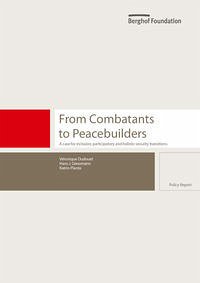Nicht lieferbar

From Combatants to Peacebuilders: A case for inclusive, participatory and holistic security transitions
Versandkostenfrei!
Nicht lieferbar
From Combatants to Peacebuilders: A case for inclusive, participatory and holistic security transitions



